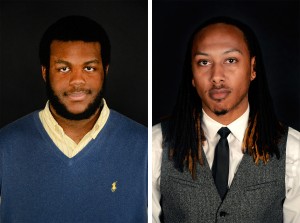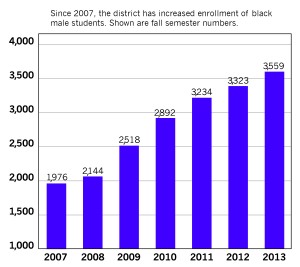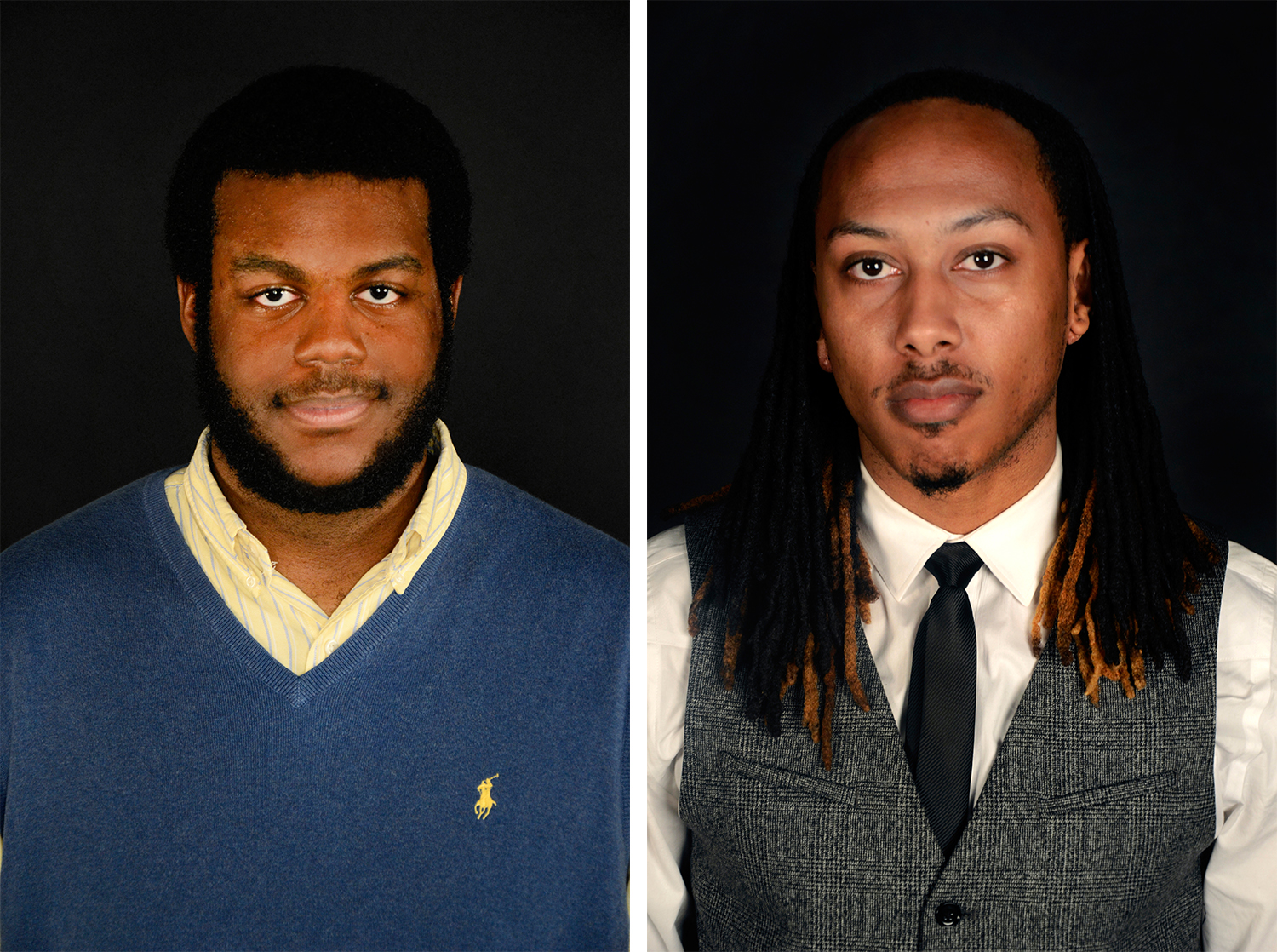By Victor Henderson/multimedia editor

The common misconception in America is that there are more black men in jail than in college, but the Men of Color Mentoring Program and students like Ira Thomas and Marcus Johnson are proving that statistic wrong.
Between 2007 and 2013, black male enrollment increased 80.1 percent districtwide, according to the TCC office of Institutional Research, Planning and Effectiveness. On TR Campus, which opened in 2009, enrollment increased 1,140 percent, the largest in the district. SE Campus had the smallest increase at 45.5 percent.
Even with this type of growth, it can often be difficult to come across black male students on campus. The question is why?
Thomas and Johnson seem to have different views that are both contributing factors in this discrepancy.
“You’ll find more women in college more than you find men,” said Thomas, a TR student. “As far as the race part of it, it’s the same. I think the Men of Color program is able to change the population of males in the college.”
Johnson, a SE student, said that even though his campus has a large representation of black males, he realizes the lack of black male representation at TCC as a whole.
“It starts in high school,” Johnson said. “A lot of students were passed through the system, or they weren’t given the resources they need to do well in college.”
Much of the media idolizes only certain types of black men: athletes and rappers, Johnson added. He feels that when those are the only images seen by young black men, it’s hard for them to aspire to anything else because the imagination is limited to two roles.
“Some don’t see education as a path to personal success,” he said. “When all you see is LeBron and Adrian Peterson, that’s what you want to be.”
Thomas has been involved in the Men of Color Mentoring Program since he began attending TCC one year ago. In that time, he said he has talked to others about the program, attended college basketball games and shared with his mentors his plans for the future.
Though the transition to college can be rough for some, he said his involvement was similar to his experience being on a sports team.
“Much of what I see from this program resembles that because there’s teamwork, there’s effort and there’s always a coach there to push you through and push you the right way,” Thomas said.
This is Johnson’s second year in the program. He said for him, the best parts of the program are the college success preparation and being encouraged to be more involved on campus. He is now a member of the Student Leadership Academy.
The program aligns itself with a new initiative launched by President Barack Obama called My Brother’s Keeper. This initiative supports the efforts of the mentoring program by encouraging young men to reach their full potential. The Obama administration has taken action by getting leading foundations and businesses involved to collaboratively build opportunity. The expectation is that everyone involved will benefit.
Men of Color started in September 2012, and its coordinators have since been working to create more opportunity for male students of color and engage the mentees in the learning environment at TCC.
TCC’s director of student success Christopher Douglas said the need to create a connection for students and engage them in TCC’s learning environment was a motivating factor with the program.
“The college’s work with Achieving the Dream caused the college to review student performance data,” he said. “Black and Latino males were not performing at levels when compared to other groups at the college.”
Gemeral Berry, a NE journalism adjunct instructor, said he typically has a low number of black students enrolled, and that number is even lower for black males.
“I’ll have two here and three here out of a class of 18,” he said.
He speculates that part of the reason is the subject. Regardless, he notices the lack.
Berry earned his undergraduate degree from the University of North Texas and was typically the only black male student or one of very few in his classes, which he said affected his learning experience.
“The instructors were typically white and male,” he said. “Any point of view that I had was filtered through the instructor and other students who didn’t have that kind of experience, so there were very few students who seemed to echo the point of view I had.”
Berry said he recognizes that as an instructor, his primary role is to see students succeed and to help them where they falter. He also makes sure to include everyone in class discussions.
“I want to make sure that black males get their view, black females get their view, Mexican-American women, all of them get their view,” he said. “This class needs their voice.”
Regardless of what it may look like, the fact is many black men are serious about education and want their futures to remain bright and promising.
A conversation Thomas had with his mentor helped him define his long-term goals, which include earning an MBA degree and a series of financial licenses. Thomas said he realized how much the program has helped him believe in his future and how reachable his goals are.
“I think any person on campus should be a part of this program because it’s truly phenomenal, and if you’re coming to college, you’ve already taken the first step toward your future,” he said. “For the ones that have been misguided, this is the program to actually take them to the course they need to go.”
Johnson plans to transfer to Texas Tech University in the fall. According to its website, African-Americans represent only 5 percent of the university, but he isn’t as concerned with being one of very few. He credits his mentor, who encouraged being involved and stepping outside of his comfort zone, as the reason.
“I went to Bowie [High School], and it had great black male representation,” he said. “I visited Lubbock, and it’s not as diverse as Arlington, but I hang out with a diverse group of people because I know it’s going to be that way in the work environment.”


